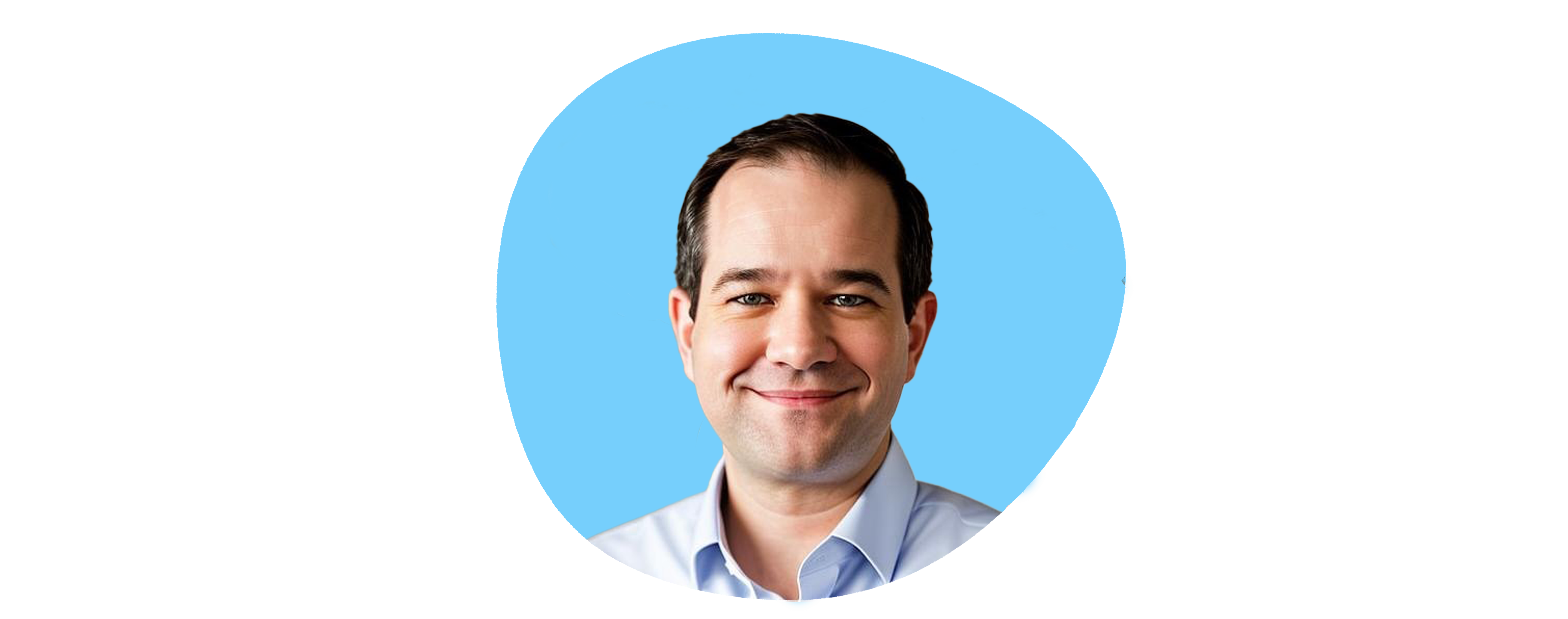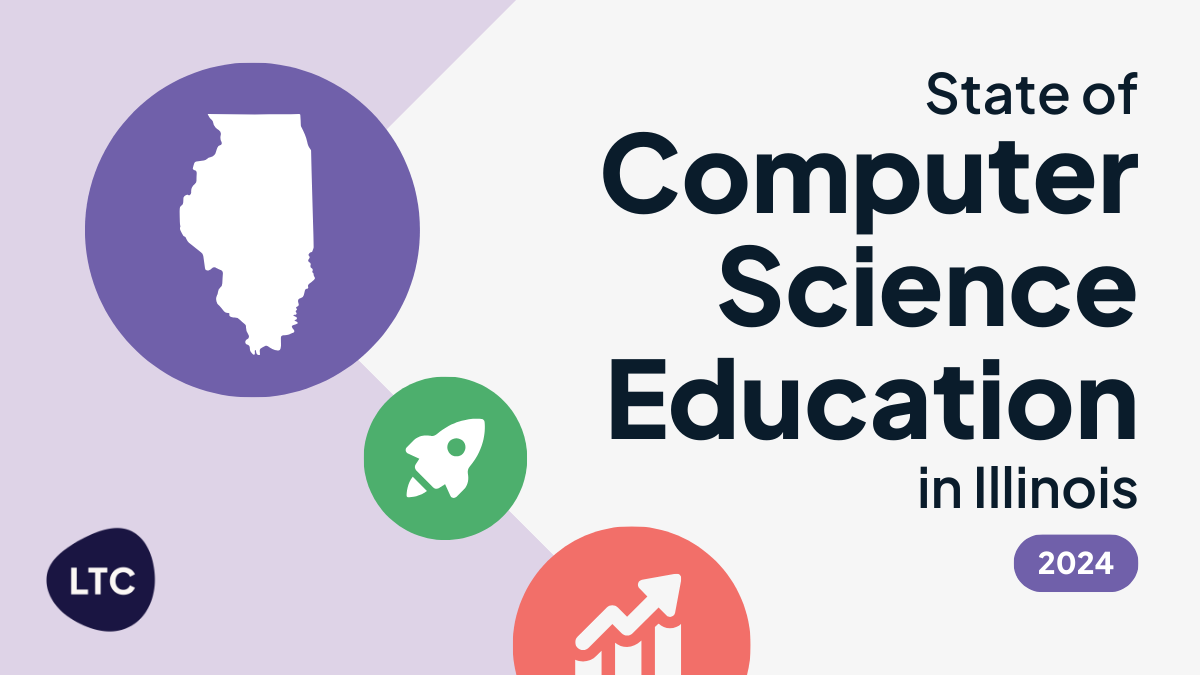Taking STEM to New Heights with Drone Soccer
This up-and-coming sport fosters serious social skills and STEM career prep. Here’s how schools are using drone soccer to elevate hands-on learning – including a
pioneering Illinois program.


No matter who they are or what career they’re seeking, computer science education opens doors for today’s students, both in and beyond the classroom. Despite that, only a fraction of Illinois students currently have access to regular CS learning – a trend education stakeholders across the state are actively working to improve.
Over the past several years, Illinois has taken significant steps toward expanding student access to engaging CS learning. These steps are taking place in the public and private spheres, with opportunities to embrace CS learning available to students, teachers, and local community members. Recent legislation and fresh professional learning opportunities for educators are also making a significant impact on this movement’s long-term sustainability.
Together, these initiatives continue to make CS learning more accessible to more students in more classrooms – especially those in rural communities. This progress is commendable, but there’s plenty of urgent work needed to ensure CS education becomes a mainstay in Illinois classrooms.
According to the 2024 State of CS report from Code.org, CSTA, and ECEP, 60% of Illinois high schools currently offer an introductory CS course – up from 54% the previous year.
During the same time period, black students and Hispanic/Latino students approached parity in access.

While these achievements demonstrate overarching growth in access, there are still groups of students lacking adequate access. According to the same report, rural and small school districts in Illinois offer CS learning opportunities at a much lower rate than urban, suburban, and large school districts statewide. Girls, low income, ELL, and students with IEPs are also underrepresented in CS courses compared to peers – part of a nationwide trend.
Since the enactment of IL Public Act 101-0654, school districts throughout the state have begun working in earnest to develop K-12 CS learning programs and build capacity toward teaching CS topics. ISBE’s new Computer Science Equity Grant (launched summer 2024) is already providing support toward these goals at the district level, as well as regionally.

Several public universities have also begun CS teacher development programs.* These programs allow participants to complete coursework leading to an ISBE-certified CS teaching endorsement.
Taken together, these state level efforts should have a positive impact on CS learning’s foundation and lower barriers to entry for districts eager to bring CS learning into the classroom.
Capacity building is essential to developing sustainable CS programs that meet each learning community’s unique needs and goals. Several Illinois-based organizations are currently working in tandem to ensure educators have access to professional learning that helps them develop into confident, capable CS teachers.

CS PD Week is the culmination of those efforts. Organized by the Learning Technology Center with partners Discovery Partners Institute (DPI) and CS4IL, this multi-day professional development experience provides Illinois K-12 educators with the knowledge, skills, and confidence needed to bring enriching computer science learning experiences to their students.
Throughout this in-depth training, new and experienced CS educators become acquainted with the resources needed to introduce computer science topics – including AI, coding, robotics, physical computing, and cybersecurity – into their home district’s curriculum. Participants also deepen their connections with the statewide CS teaching community through organic networking opportunities that empower them during implementation and beyond.
Now in its third year, CS PD Week is making strides toward lowering barriers to entry for CS professional learning. All participants are able to attend this year’s course at low or no cost, thanks to support from Google, Code.org, CSTA, and the Illinois CS Equity Grant.
Registration for this year’s event is now open. Attendees can chart their own course with one of five learning tracks geared toward K-5, 6-12, and 9-12 educators.
Everyone in our learning community has a role to play in bringing CS learning to life. Here are a few ways to make an impact in your area:
All Grade Levels and Content Areas
Start by digging your roots deep in a professional learning community focused on computer science, such as the LTC’s monthly online CS & STEM networking meetings, Illinois’ CSTA chapter, or Chicago CSTA chapter. These groups can connect you with curated resources and experienced peers who can answer your questions every step of the way.

Once you’re ready to bring CS into your classroom, pick a time to teach your first CS-themed lesson – such as next week during CS Education Week (December 9-13). This is a perfect opportunity to engage students, fellow teachers, administrators, and families with CS’ educational potential.
Hour of Code activities can serve as a great intro activity or drop-in lesson. Check out this Hour of Code menu for digital and unplugged ways to get your students into CS learning.
Advocacy groups in Illinois such as the Illinois ECEP Alliance and CS4IL advocate for stronger CS programs in local schools through legislation, outreach, research, and funding.
Community members and parents can advocate by attending school board meetings and connecting with local CS educators. Supporting community initiatives, such as coding boot camps or hackathons for students, is another way to promote CS education beyond the classroom.
Students can participate in extracurricular CS opportunities, including robotics clubs, coding challenges, and internships with tech companies. They can also take on leadership roles by becoming student ambassadors for CS organizations or hosting community events.
Computer science education’s importance cannot be overstated. As computing technology continues to evolve, it is paramount that we equip Illinois students with the skills they need to succeed in the future workforce.
I encourage you to take action by supporting or getting involved in CS initiatives in your community. For more ways to engage in CS education – including through teaching resources and professional learning – visit our CS & STEM hub or contact Program Director Sarah Phelps.

Sarah leads computer science and STEM initiatives, manages partnerships with state and national organizations, and elevates the LTC’s role as a thought leader in the K-12 computer science space.